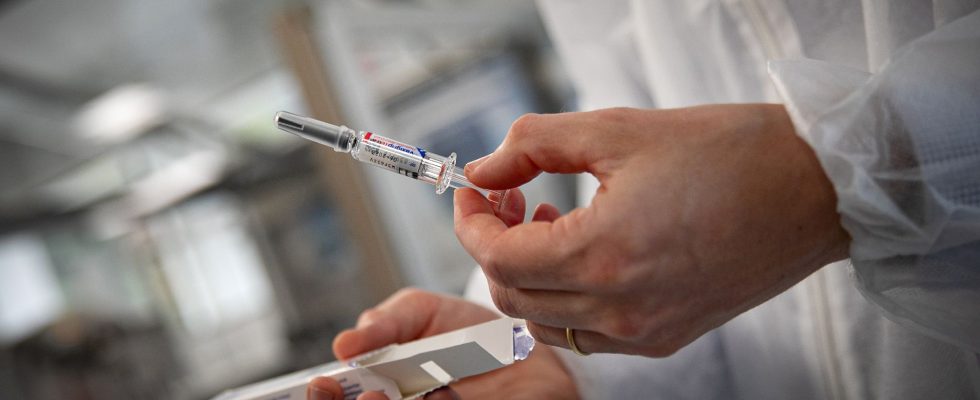He hadn’t been talked about for a few months already. But in this first week of August, the Covid-19 is knocking on our doors. Emergency room visits for suspected infection rose by 31% compared to last week, concerning 920 patients, according to data from Public Health France. On the side of SOS Médecins, it is not better with a jump of 84% in one week: “medical acts for suspected Covid-19 are on the rise in all age groups”. For the moment, the figures are far from reaching those of the previous waves. “But we must remain vigilant, because the situation is changing rapidly,” said Aurélien Rousseau, Minister of Health, in a statement sent to AFP. “We must, for several more seasons, live with the resurgences of this virus.”
A resumption of the epidemic is also reported in the United States, the United Kingdom, India or Japan. “The virus continues to circulate in all countries, to kill and to change”, underlined this August 9 Tedros Adhanom Ghebreyesus, director general of the World Health Organization (WHO). The EG.5 version, dubbed “Eris”, is particularly scrutinized: it is suspected of being at the origin of the rebound. Fortunately, at this point, this Omicron sub-variant does not appear to be more virulent than the others. The WHO nevertheless urged to “intensify efforts to increase vaccination coverage”. The message is received five out of five by the government, which is already preparing its recall campaign in the fall. Deadlines, target audience, vaccines administered… L’Express sums up everything there is to know.
What is this recall campaign?
A vaccine reminder campaign against Covid-19 will begin in the fall, together with that against the flu. It will be launched on October 17 in mainland France, Guadeloupe, Martinique and Guyana, and on September 6 in Mayotte, details an interministerial note published at the end of July. The government is thus following the recommendations of the High Authority for Health (HAS), which had encouraged it to organize this new campaign via a note published in February.
“Studies show that giving a booster dose “provides” additional protection against the occurrence of symptomatic infections […] hospitalizations […] and deaths”, explains the HAS. The injection of a vaccine against Covid-19 can be carried out jointly with that of a vaccine against the flu. The two can be “practiced at the same time”, for example a on each arm, specifies the interministerial note.
Who is the target audience?
This recall campaign will not be mandatory. It is mainly intended for the public at risk, i.e.: immunocompromised people, people with comorbidities (obesity, diabetes, etc.), people over 65 and pregnant women. “We know that children pay a heavy price for Covid-19, because they can contract the infection in their mother’s womb”, explains to L’Express Antoine Flahault, epidemiologist and director of the Global Health Institute in Geneva ( Swiss).
Health professionals in contact with people at risk are also encouraged to receive their booster dose. The only condition is to respect a period of at least six months between this new injection, and the last infection or vaccination against Covid-19.
What vaccines will be administered?
Messenger RNA vaccines, such as Pfizer or Moderna, continue to be recommended by HAS. These laboratories are also preparing new vaccines that are supposed to be more resistant to Omicron and its sub-variants. They will be offered for the recall this fall, “if we have them in time”, specifies Antoine Flahault. “The Novavax vaccine, as an alternative to these messenger RNA vaccines, is also licensed for seasonal boosters.”
In addition to the booster dose, the epidemiologist also recommends wearing an FFP2 mask in public transport and poorly ventilated closed places. He pleads in favor of a “ventilation plan”, which would aim for “a significant improvement in the quality of indoor air”. “More than 95% of contaminations” at Covid-19 indeed occur in closed spaces.
